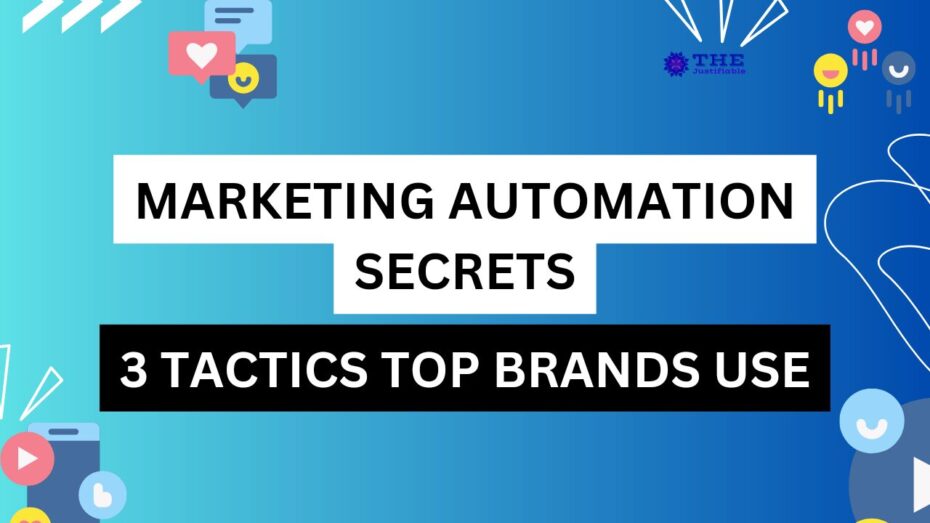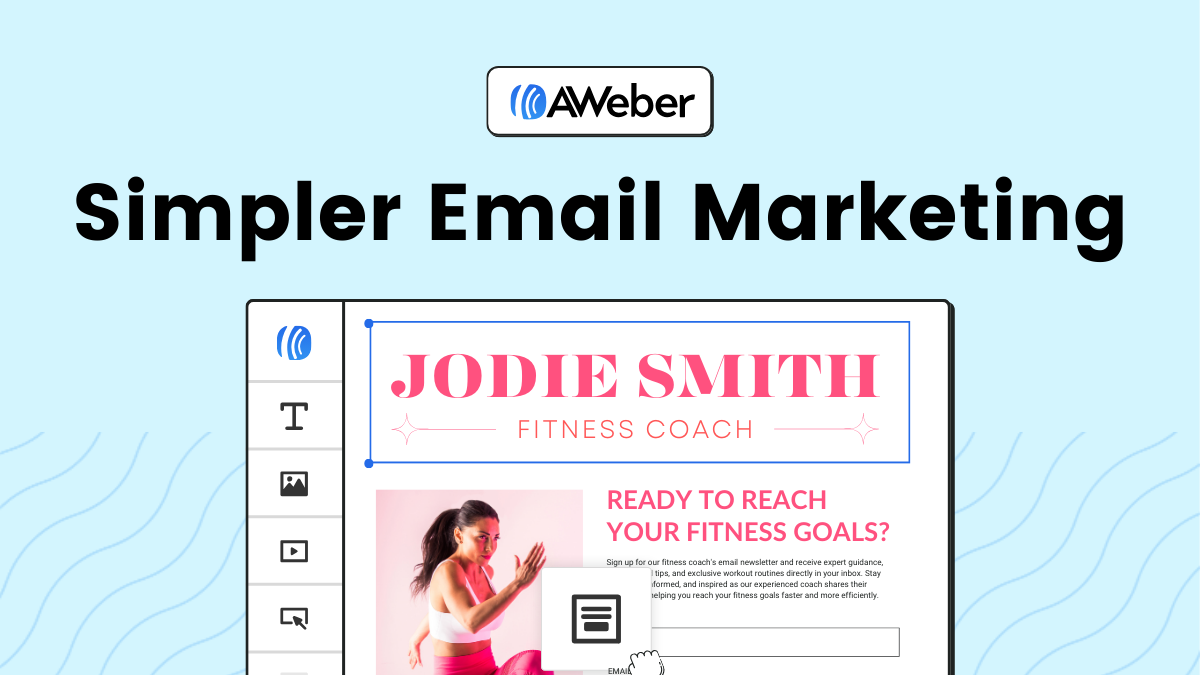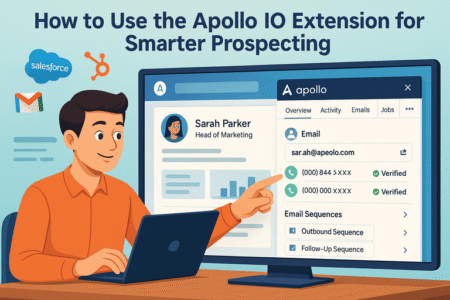Table of Contents
Are you ready to unlock the full potential of your marketing efforts and achieve unparalleled success? Marketing automation might just be the secret weapon you’re looking for. How can this technology transform your business? What makes it so indispensable for top brands around the world?
In this introduction, we’ll dive deep into the essence of marketing automation, exploring its incredible benefits and the ways it can revolutionize your marketing strategy. From personalizing customer experiences at scale to optimizing your campaigns with precision, marketing automation is not just a tool—it’s the future of effective marketing.
By embracing this powerful technology, you’re not only streamlining your operations but also unlocking a treasure trove of insights that can propel your brand to new heights. Join us as we explore the key tactics that top brands use to leverage marketing automation, ensuring your journey towards marketing excellence is both enlightening and transformative.
The Power of Marketing Automation: Transforming Businesses
Did you know that businesses using marketing automation to nurture prospects experience a significant 451% increase in qualified leads? That’s not just a number; it’s a testament to the transformative power of marketing automation. This technology isn’t just about sending emails automatically; it’s about creating a smarter, more personalized marketing strategy that speaks directly to the needs and interests of your audience.
By leveraging the capabilities of marketing automation, businesses can not only increase efficiency but also enhance the effectiveness of their marketing campaigns. It enables a deeper understanding of customer behaviors and preferences, paving the way for more targeted and meaningful interactions.
Imagine having the ability to deliver the right message, to the right person, at the exact right time, without lifting a finger during the execution phase. That’s the magic of marketing automation, transforming businesses from reactive to proactive, from generic to personalized, and from unnoticed to unforgettable.
Why Top Brands Rely on Marketing Automation: Key Benefits
In the competitive world of marketing, top brands are not just participating; they’re leading the race, thanks to marketing automation. But why do they put so much faith in this technology? The answer lies in the key benefits that marketing automation offers.
First and foremost, it significantly improves customer engagement. By automating the delivery of personalized content and offers based on user behavior and preferences, brands can connect with their audience in a more meaningful way. Efficiency is another major advantage. Marketing teams can set up campaigns once and watch them run automatically, freeing up valuable time to focus on strategy and creativity.
Furthermore, marketing automation provides invaluable insights into campaign performance and customer interactions, allowing brands to continuously optimize their efforts for better results.
The ability to seamlessly integrate with other tools and platforms means that marketing automation sits at the heart of a unified marketing strategy, enabling brands to deliver a cohesive and consistent experience across all channels.
In essence, marketing automation is not just a tool for efficiency; it’s a strategy for growth, engagement, and innovation.
1. Leveraging AI for Precision Targeting
Believe it or not, the key to unlocking the full potential of your marketing campaigns might just be a machine. When we talk about leveraging AI for precision targeting in marketing automation, some may raise an eyebrow, wondering how technology could possibly understand the nuanced needs of human consumers. Yet, the truth is, AI is revolutionizing the way brands connect with their audience, offering a level of personalization and efficiency previously unimaginable.
AI-driven marketing automation tools are not only capable of analyzing vast amounts of data in real-time; they’re also learning from it, constantly improving the accuracy with which they target users. This means that your marketing messages can be more relevant than ever before, delivered to the right people at the right time, through the right channels.
The beauty of AI in marketing automation lies in its ability to uncover hidden patterns in customer behavior, preferences, and engagement, turning these insights into actionable strategies that drive conversions.
For brands, this represents a monumental shift from the scattergun approach of traditional marketing to a more sniper-like precision in targeting. By integrating AI into your marketing automation efforts, you’re not just sending out campaigns; you’re engaging in a sophisticated dialogue with your audience. Each interaction is an opportunity to learn and refine, ensuring that every touchpoint is optimized for impact.
How AI Enhances Marketing Automation for Customer Engagement
In the ever-evolving landscape of digital marketing, the fusion of AI with marketing automation is not just an upgrade; it’s a revolution. Imagine having a conversation with your customers that’s so personalized, it feels like you’ve known them for years.
That’s the power AI brings to marketing automation, transforming customer engagement from a one-size-fits-all broadcast to a tailor-made dialogue. AI excels in understanding and predicting consumer behavior, enabling brands to send the right message, to the right person, at the perfect moment. This isn’t just about analyzing clicks and opens; it’s about interpreting the subtle cues that tell you what your customers really want and need.
By doing so, AI-driven marketing automation creates a seamless, engaging experience that feels both personal and relevant. It’s like having a smart assistant who knows your audience as well as you do, if not better, ensuring that every interaction strengthens the relationship between your brand and your customers.
Ways Top Brands Use AI to Boost Conversion Rates
Top brands are always on the lookout for strategies that not only capture attention but convert interest into action. Here’s how they’re using AI in marketing automation to skyrocket their conversion rates:
- Predictive Personalization: By analyzing past behavior, AI predicts future needs, tailoring offers and content to match individual customer profiles. This means that customers receive recommendations and deals that feel handpicked for them.
- Optimized Timing and Channels: AI determines the best times and channels to reach each customer, ensuring messages are seen and acted upon. Whether it’s email, social media, or text, AI knows where and when you’ll get their attention.
- Dynamic Content Creation: AI-powered tools generate content that resonates with different segments of your audience, dynamically adjusting messaging based on real-time interactions and feedback.
- Enhanced Lead Scoring: AI algorithms score leads more accurately by analyzing a wide range of behaviors and data points, prioritizing those most likely to convert and enabling targeted follow-up strategies.
- Automated A/B Testing: AI automates the testing of different campaign elements, from subject lines to images, quickly identifying what works best for various segments, thereby continuously improving engagement and conversion rates.
2. Personalization at Scale: The Game-Changer
“Personalization isn’t just a trend; it’s the future,” once remarked a marketing visionary. In the realm of marketing automation, this statement has never been truer. The ability to deliver personalization at scale is what sets leading brands apart in today’s digital marketplace. It’s the bridge between your brand and the personal world of your customers, allowing for interactions that are not just seen but deeply felt.
The magic of marketing automation lies in its ability to use customer data to craft individualized experiences seamlessly. This isn’t about bombarding your audience with generic messages. It’s about understanding their unique preferences, behaviors, and needs, and then delivering content that resonates on a personal level.
The beauty of this approach is that it doesn’t require manual segmentation or guesswork. Advanced algorithms and machine learning technologies work behind the scenes, analyzing data to predict what your customers want before they even know it themselves.
But personalization at scale does more than just impress your audience. It drives measurable results. When customers feel understood, they’re more engaged, more loyal, and more likely to convert.
Each personalized interaction increases their connection to your brand, turning casual browsers into loyal advocates. This is the power of marketing automation—turning vast arrays of data into deeply personal customer experiences, efficiently and at scale.
Crafting Custom Experiences with Marketing Automation
Have you ever wondered how some brands seem to know exactly what you want, even before you do? The secret lies in crafting custom experiences through marketing automation. This powerful tool allows brands to dive deep into customer data, understanding individual preferences and behaviors to create personalized interactions at every touchpoint.
But it’s not just about analyzing data; it’s about transforming that data into meaningful, engaging experiences that resonate with each customer.
Marketing automation empowers businesses to segment their audience with precision, delivering content and offers that are tailored to each individual’s interests and needs. From personalized email campaigns to customized website experiences, the goal is to make every customer feel like the brand is speaking directly to them.
This level of personalization fosters a stronger connection between the brand and the customer, enhancing loyalty and encouraging repeat business. By leveraging the capabilities of marketing automation, businesses can move beyond one-size-fits-all marketing strategies and embrace the power of personalization to stand out in a crowded marketplace.
The Impact of Personalization: 3 Key Statistics
Personalization is not just a buzzword; it’s a business imperative. But don’t just take our word for it. Here are three key statistics that highlight the impact of personalization through marketing automation:
- Increased Sales and Revenue: Personalized email campaigns are known to deliver 6x higher transaction rates. When customers receive offers and content that match their interests, they’re more likely to make a purchase, driving up sales and revenue for businesses.
- Improved Customer Engagement: Businesses that excel in personalization generate 40% more revenue from their activities than average performers. By engaging customers with relevant content, brands can foster loyalty and encourage repeat business.
- Higher Conversion Rates: Websites with personalized content have seen an average of a 19% increase in sales. Customizing the browsing experience for visitors not only captures their attention but also guides them smoothly along the path to conversion.
These statistics underscore the transformative power of personalization in marketing. By harnessing the capabilities of marketing automation, brands can create custom experiences that not only delight and engage customers but also drive tangible business results. In the competitive landscape of digital marketing, personalization isn’t just an advantage; it’s a necessity.
3. Optimizing Customer Journeys with Data Analytics
Did you know that companies that successfully analyze their customers’ journeys enjoy a whopping 70% better performance compared to their peers? This striking statistic highlights the critical role of data analytics in optimizing customer journeys through marketing automation.
In today’s digital-first world, understanding and enhancing every step of the customer’s journey isn’t just beneficial—it’s essential for staying ahead in a competitive marketplace.
Data analytics, powered by marketing automation, provides unparalleled insights into how customers interact with your brand across various touchpoints. This isn’t about drowning in data; it’s about strategically using this information to create a seamless, engaging customer journey.
By analyzing patterns, behaviors, and feedback, brands can identify pain points and opportunities, tailoring their marketing efforts to meet customers exactly where they are.
Imagine being able to predict what your customer needs next, or pinpointing the exact moment they’re ready to make a purchase. That’s the power of optimizing customer journeys with data analytics. It transforms marketing from a guessing game into a precise science, allowing brands to deliver personalized experiences that resonate deeply with their audience.
This approach not only increases customer satisfaction but also boosts loyalty and conversion rates, driving substantial growth for businesses.
Decoding Customer Behavior: Insights from Marketing Automation
Navigating the world of marketing without automation is like trying to solve a puzzle with half the pieces missing. Marketing automation provides the missing pieces, offering deep insights into customer behavior that enable brands to see the complete picture. By understanding the how and why behind customer interactions, businesses can tailor their strategies to meet and exceed expectations, fostering loyalty and driving conversions.
Marketing automation tools are like the ultimate decoder ring for customer behavior, translating actions, preferences, and feedback into actionable insights. These insights allow brands to anticipate needs, personalize communications, and deliver exactly what the customer is looking for at just the right moment.
It’s about creating a marketing strategy that’s responsive, dynamic, and always in tune with your audience’s evolving desires. With every click, view, and purchase, marketing automation helps you understand your customers better, building a foundation for long-lasting relationships.
Steps to Utilize Analytics for Journey Optimization
Optimizing the customer journey is not just a goal; it’s a journey in itself, one that requires careful planning, execution, and adjustment. Here are four essential steps to leverage analytics for journey optimization through marketing automation:
- Collect and Analyze Data: Start by gathering data from every touchpoint in the customer journey. Use marketing automation tools to track interactions, preferences, and behaviors. This comprehensive view is crucial for understanding where you’re meeting customer needs and where there’s room for improvement.
- Segment and Personalize: Use the insights gained from your data to segment your audience into distinct groups based on their behaviors and preferences. Tailor your marketing efforts to address the specific needs and desires of each segment, creating a more personalized and effective journey.
- Test and Refine: Marketing is an ever-evolving field, and what works today may not work tomorrow. Use A/B testing and other analytical tools to test different approaches and strategies. Continuously refine your tactics based on the results, ensuring that your marketing efforts are always optimized for maximum impact.
- Implement and Monitor: With your strategies refined, implement them across your marketing channels. But the work doesn’t stop there. Continuously monitor performance, using marketing automation analytics to keep track of how well your efforts are resonating with your audience. Be prepared to adjust your tactics as needed to ensure that the customer journey remains engaging and effective.
By following these steps, you can utilize analytics to not just understand but also enhance the customer journey. Marketing automation offers the tools and insights needed to make every step of that journey as smooth and successful as possible, turning potential customers into loyal fans.
Advanced Tactics in Marketing Automation
Embarking on the journey of marketing automation is like setting sail on the vast ocean of digital marketing. Initially, the waters might seem calm and manageable with basic navigation, but as you delve deeper, you realize the need for more advanced tactics to conquer the turbulent waves and reach new horizons of success.
Marketing automation, in its essence, is not just about automating repetitive tasks; it’s about leveraging sophisticated strategies to create more meaningful and effective customer interactions.
To truly excel in marketing automation, it’s crucial to think beyond the basics and explore advanced tactics that can elevate your marketing efforts to new heights. This involves a blend of technology, creativity, and data-driven insights to craft campaigns that resonate deeply with your audience.
By implementing advanced segmentation, personalization, lead scoring, and predictive analytics, you can ensure that your marketing messages hit the mark every time.
One of the key advanced tactics is the use of AI and machine learning to predict customer behavior and preferences. This not only enhances the personalization of your campaigns but also helps in optimizing the timing and channel for your communications.
Furthermore, integrating your marketing automation platform with other tools and systems, like CRM and CMS, can provide a holistic view of your customers and streamline your marketing processes.
But remember, with great power comes great responsibility. Advanced tactics require a thoughtful approach and ongoing optimization to truly harness their potential. Testing and analyzing the outcomes of your strategies are paramount to understanding what works best for your audience.
This continuous cycle of learning and adapting is what makes marketing automation a powerful ally in the ever-evolving landscape of digital marketing.
Beyond Basics: Elevating Strategies with Automation Tools
“As we navigate the future, remember, the best way to predict it is to create it,” Peter Drucker famously said. This sentiment rings especially true in the realm of marketing automation, where moving beyond the basics to elevate your strategies can transform your business’s future.
It’s not just about automating emails or social media posts; it’s about utilizing automation tools to craft a nuanced, dynamic marketing ecosystem that thrives on innovation and precision.
Elevating your strategies with marketing automation tools means diving deeper into the capabilities of AI, machine learning, and sophisticated analytics to understand and predict customer behavior like never before. It’s about harnessing the power of these tools to create hyper-personalized experiences that speak directly to the individual needs and desires of your audience.
By doing so, you can move from broad, generic marketing tactics to highly targeted, effective strategies that not only engage but also convert.
Furthermore, advanced automation tools offer the ability to fine-tune your marketing efforts in real-time, adapting to the ever-changing landscape of consumer preferences and digital trends. This agility is crucial in today’s fast-paced world, where being able to quickly pivot and respond to new information can make the difference between a campaign that resonates and one that falls flat.
Embrace the advanced features of marketing automation to elevate your marketing strategies, and you’ll create not just campaigns, but experiences that leave a lasting impact on your audience.
Seamless Integration: Unifying Your Marketing Channels
In a world where customers interact with brands across a multitude of channels, seamless integration is not just beneficial—it’s essential. Marketing automation plays a pivotal role in unifying these channels, ensuring that your brand delivers a cohesive, consistent experience no matter where your customers find you.
Think of your marketing channels as instruments in an orchestra; individually, they each play a unique role, but together, under the guidance of a skilled conductor (your marketing automation platform), they create a harmonious symphony.
Seamless integration through marketing automation means that your email campaigns, social media, website content, and offline efforts all tell the same story. It ensures that messages are not just consistent but also complementary, guiding the customer through a journey that feels both personal and connected across all touchpoints.
This level of integration allows for a more comprehensive understanding of customer behavior, as data from various channels are combined to give a 360-degree view of the customer journey.
Implementing marketing automation for seamless channel integration also offers operational efficiencies, reducing the manual effort required to coordinate across different platforms and enabling a more strategic use of resources.
By leveraging automation tools to integrate your marketing channels, you create a stronger, more unified brand presence that enhances customer engagement, improves loyalty, and drives conversions. In the end, it’s about providing a seamless, integrated experience that meets your customers wherever they are, making every interaction count.
How Brands Achieve Remarkable Growth with Automation
In a digital age where personalization and efficiency are king, marketing automation stands as a beacon of innovation for brands aiming for remarkable growth. It’s the engine behind the scenes, powering personalized customer journeys, optimizing marketing strategies, and ultimately driving revenue growth. But how exactly do brands leverage automation to achieve such impressive results?
The secret lies in their ability to harness the power of marketing automation to not only understand their customers better but to act on that understanding in real-time. It’s about creating a dynamic, interactive dialogue with customers, where every touchpoint is an opportunity to deepen the relationship.
By utilizing data analytics and AI, these brands can predict customer behavior, tailor their marketing messages, and deliver them across the most effective channels, ensuring maximum engagement and conversion.
This approach transforms marketing from a scattergun effort into a highly focused, strategic operation. Automation enables brands to segment their audiences with laser precision, deliver personalized content that resonates on an individual level, and measure the impact of their campaigns in real-time.
This not only increases the efficiency of their marketing efforts but also significantly enhances the customer experience, fostering loyalty and encouraging repeat business.
Marketing Automation Strategies Behind Their Success
Segmentation and Personalization: Top brands use marketing automation to divide their customer base into distinct segments based on behavior, preferences, and purchase history. This allows for highly personalized marketing campaigns that speak directly to the individual needs and interests of their customers, leading to higher engagement and conversion rates.
Lead Nurturing and Scoring: Effective lead management is another cornerstone of successful marketing automation strategies. By nurturing leads with targeted content and scoring them based on their engagement, brands can prioritize their efforts towards the most promising prospects, increasing the likelihood of conversion and maximizing ROI.
Cross-Channel Marketing: Integrating marketing automation across all channels ensures a unified brand experience for the customer. Whether it’s email, social media, or the web, automation tools help synchronize messages across platforms, creating a seamless journey that guides customers from awareness to purchase. This cross-channel consistency is key to building trust and driving sales.
Future Trends in Marketing Automation
Are you prepared for what the future holds in marketing automation? How will emerging technologies reshape the way we engage with our audience? The landscape of digital marketing is evolving at an unprecedented pace, with marketing automation at the forefront of this transformation.
As we look ahead, understanding the future trends in marketing automation is crucial for brands aiming to stay competitive and innovative. This section will explore how emerging technologies and advanced analytical tools are set to redefine marketing strategies, offering a glimpse into the future of personalized and efficient customer engagement.
Staying Ahead: Emerging Technologies in Automation
The next wave of technological advancements in marketing automation is poised to make the impossible possible. Imagine a world where virtual reality (VR) and augmented reality (AR) are not just for gaming but integral parts of your marketing toolkit.
These technologies offer immersive experiences that can captivate customers in ways traditional media never could, providing interactive and engaging ways to showcase products and services.
Artificial Intelligence (AI) and Internet of Things (IoT) are also set to play pivotal roles in marketing automation. AI’s ability to analyze data and learn from it means marketing strategies can become more intelligent and adaptive, predicting customer behavior and personalizing content with astonishing accuracy.
Meanwhile, IoT opens up new channels for customer engagement, with smart devices providing constant, contextual touchpoints for marketers to leverage.
As these technologies mature, the integration of marketing automation platforms with these tools will become seamless, offering marketers unprecedented capabilities to engage with their audience in real time, across multiple channels and devices.
The future of marketing automation lies in the ability to not just reach customers but to create meaningful, memorable interactions that resonate on a personal level.
Predictive Analytics and Machine Learning: Next Frontier
The true potential of marketing automation lies in its ability to anticipate the needs and desires of the consumer before they even express them. Predictive analytics and machine learning are at the heart of this capability, representing the next frontier in marketing automation.
These technologies can sift through vast amounts of data to identify patterns and trends, making accurate predictions about customer behavior and preferences.
This means marketers can move from reactive to proactive, crafting campaigns that are not only highly personalized but also timed to perfection. Predictive analytics can inform everything from product development to optimal communication strategies, ensuring that marketing efforts are always one step ahead of consumer demand.
Furthermore, machine learning algorithms continuously refine these predictions over time, learning from each interaction to become more accurate and effective. This ongoing optimization process ensures that marketing strategies remain relevant and impactful, even as market conditions and consumer behaviors evolve.
Conclusion: Unlocking Your Brand’s Potential
“Your brand is the single most important investment you can make in your business,” Steve Forbes once said. This powerful statement underscores the pivotal role of marketing in unlocking the true potential of your brand.
In the dynamic landscape of digital marketing, embracing marketing automation emerges as a crucial strategy for brands aiming to elevate their presence and connect with their audience on a deeper level.
Embracing Marketing Automation: Key Takeaways
Marketing automation is not just a tool; it’s a transformative strategy that enables your brand to engage with customers more effectively, efficiently, and personally. The key takeaways from our exploration of marketing automation are clear:
- Personalization at Scale: Marketing automation enables you to deliver personalized experiences to a vast audience, making each customer feel valued and understood.
- Efficiency and Productivity: Automating repetitive tasks frees up your team’s time to focus on creative and strategic endeavors, enhancing both productivity and job satisfaction.
- Data-Driven Decisions: With marketing automation, every decision is informed by data, ensuring that your strategies are grounded in real customer behaviors and preferences.
- Continuous Optimization: The ability to test, measure, and refine your campaigns in real-time allows for continuous improvement, keeping your marketing efforts agile and effective.
Embracing marketing automation is about more than just adopting new technology; it’s about shifting your mindset towards a more customer-centric, data-driven approach to marketing.
Start Your Journey to Marketing Automation Mastery Today
The journey to marketing automation mastery begins with a single step: commitment. Commit to exploring the capabilities of marketing automation and how they can be tailored to your brand’s unique needs and goals. Remember, the landscape of digital marketing is ever-evolving, and staying ahead requires not just adopting new technologies but also embracing a culture of learning and innovation.
Starting your journey involves:
- Educating Your Team: Ensure your team understands the benefits and capabilities of marketing automation, fostering a culture of innovation and continuous learning.
- Choosing the Right Platform: Select a marketing automation platform that aligns with your brand’s goals, size, and resources, considering scalability for future growth.
- Setting Clear Objectives: Define what you aim to achieve with marketing automation, whether it’s increasing leads, enhancing customer engagement, or boosting sales.
- Implementing Strategically: Start small with targeted campaigns, gradually expanding as you become more comfortable and confident in your marketing automation skills.
- Measuring and Refining: Continuously analyze the performance of your campaigns, using insights to refine and improve your strategies over time.










